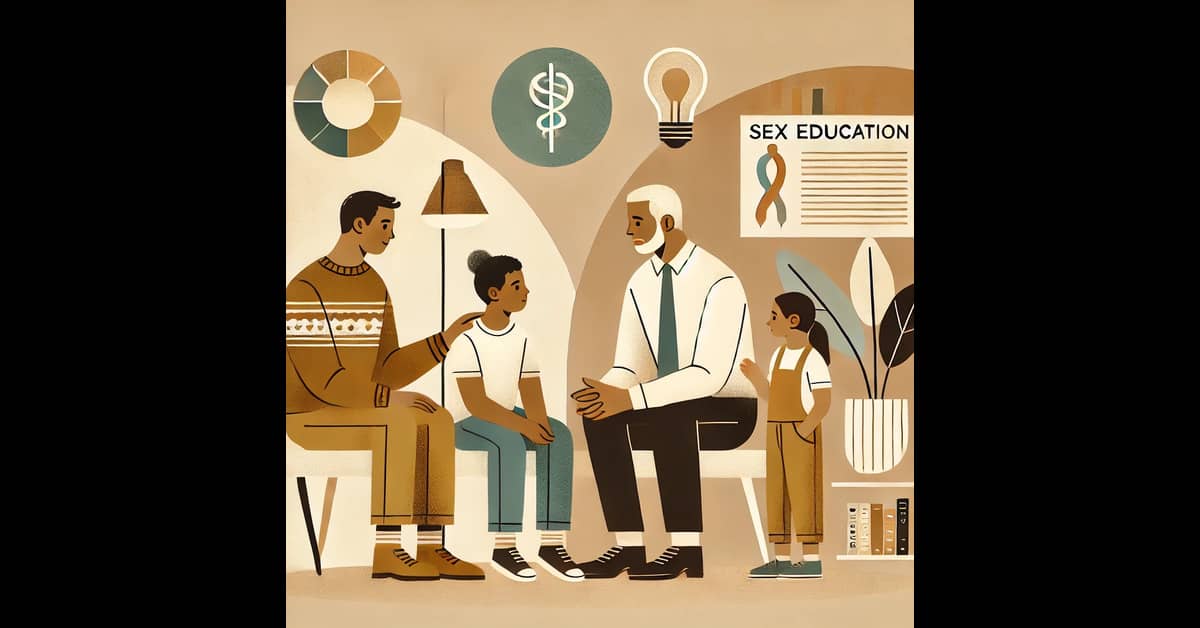In today’s fast-paced digital world, young people are constantly exposed to a flood of information, some of which can be misleading or harmful. This makes sex education a critical aspect of youth development, especially for both boys and girls. It is not just about biology, but also about safety, consent, relationships, and emotional health. Sex education plays an integral role in fostering responsible attitudes toward sexuality and empowering young people to make informed decisions.
As a parent, you have a crucial role in guiding your children through this important topic. Open conversations at home help young people navigate sexual health, values, and boundaries in a healthy way. Let’s explore why sex education is essential for today’s youth and how parents can take an active, supportive role in it.
Importance of sex education
Why Is Sex Education Important for Youth?
1. Promoting Physical and Emotional Health
Understanding the basics of reproduction, contraception, and disease prevention enables young people to protect their physical health. Boys and girls who receive accurate information about sex are more likely to adopt safe behaviors, reducing the risk of sexually transmitted infections (STIs) and unintended pregnancies.
Beyond physical health, sex education also addresses emotional aspects like relationships, consent, and respect. It helps teens navigate complex emotions and social pressures related to sexual activity. By teaching them to respect themselves and others, we foster a generation that values healthy, respectful relationships.
2. Preventing Misinformation
The internet is full of unverified and often incorrect information about sex, relationships, and body image. Without proper guidance, young people can develop harmful misconceptions about sex. Comprehensive sex education ensures that they receive accurate, age-appropriate information from trusted sources, reducing reliance on peers, media, or pornography for answers.
3. Building Confidence and Reducing Shame
Sex education helps young people, especially girls, understand their bodies and removes stigma or shame associated with sexuality. This is particularly important for young women, who are often subject to societal pressures regarding their appearance and behavior. Empowering both boys and girls with knowledge allows them to make confident, informed decisions without fear of judgment.
4. Teaching Consent and Respect
One of the most important aspects of modern sex education is the focus on consent and mutual respect in relationships. Boys and girls must understand that consent is essential in any sexual encounter. Teaching youth about boundaries, mutual respect, and clear communication helps prevent sexual abuse and promotes healthier, more respectful relationships.
Parents’ Role in Sex Education: Why Your Involvement Matters
As parents, your involvement in your child’s sex education is invaluable. The home is often the first place where young people learn about relationships, values, and behaviors. Here are ways you can be proactive in helping your child navigate this critical subject:
1. Start Early and Be Open
Sex education doesn’t have to be a one-time “talk.” Starting age-appropriate conversations about body parts, personal boundaries, and relationships when children are young sets a foundation for more detailed discussions later. Keeping an open dialogue means your children will feel comfortable coming to you with questions as they grow.
2. Encourage Critical Thinking
Help your children critically evaluate the information they come across online, in media, or from friends. Teach them to question sources and understand the difference between reality and misinformation. This also helps them develop a healthy attitude toward body image, relationships, and personal choices.
3. Provide Emotional Support
Discussing sex and relationships can sometimes be uncomfortable for both parents and children. However, by providing emotional support and creating a non-judgmental environment, you allow your child to feel safe asking questions. This approach strengthens your relationship with your child and fosters trust.
4. Set Clear Values, But Allow Autonomy
While it’s important to communicate your family’s values regarding sex, relationships, and personal behavior, it’s equally important to respect your child’s autonomy. Allow your child to form their own informed opinions and decisions, within the framework of the values you’ve discussed.
5. Promote Gender Equality
Sex education is as important for boys as it is for girls. Encourage both genders to understand the importance of mutual respect, equality, and consent in relationships. By addressing gender stereotypes and promoting equality, you help boys and girls foster healthier, more balanced interactions with one another.
Final Thoughts: Empowering the Next Generation through Knowledge
Sex education is about more than just the physical aspects of sex. It is a holistic approach that empowers young people to understand their bodies, emotions, and relationships. For both boys and girls, early and accurate sex education builds confidence, promotes safety, and encourages respectful relationships.
As a parent, you are a key figure in guiding your children through these important life lessons. By maintaining open lines of communication, providing accurate information, and fostering a supportive environment, you can ensure that your child is well-equipped to make informed, responsible decisions about their sexual health.
In doing so, we help build a future where young people are confident, informed, and respectful—ready to navigate the complexities of relationships and sexuality with a healthy, positive mindset.


